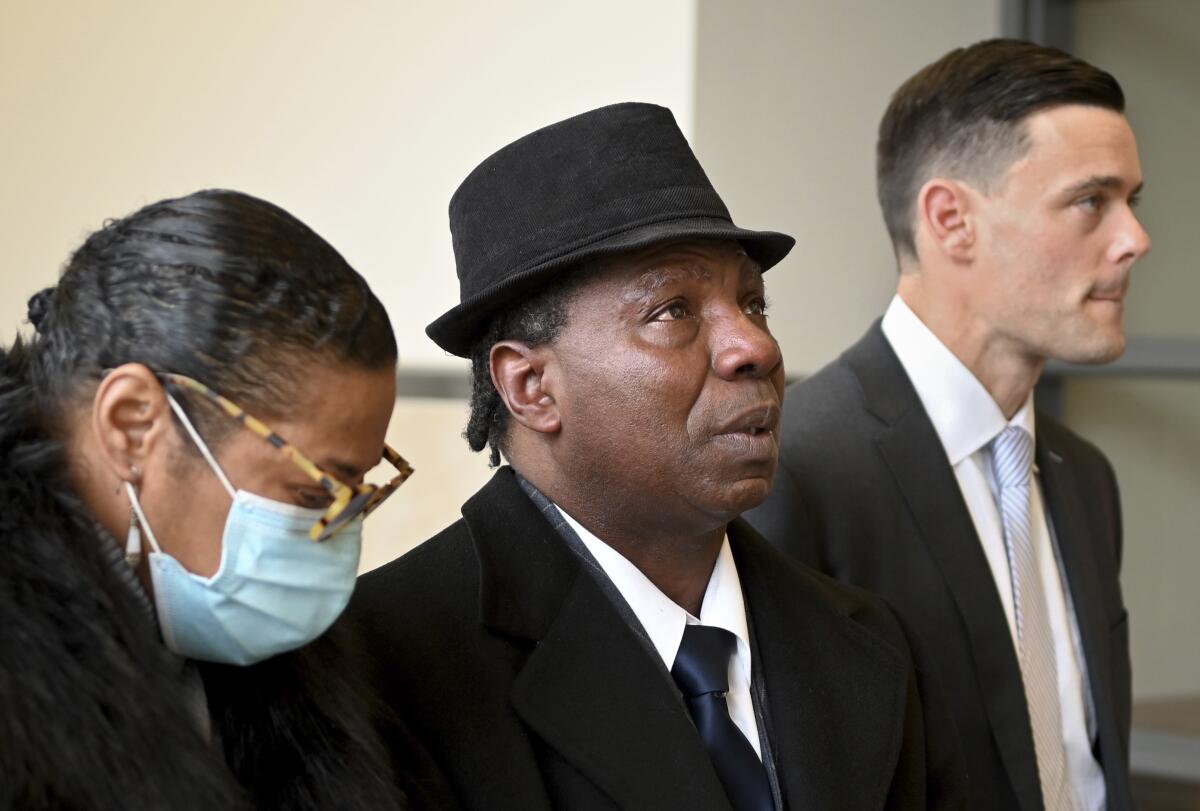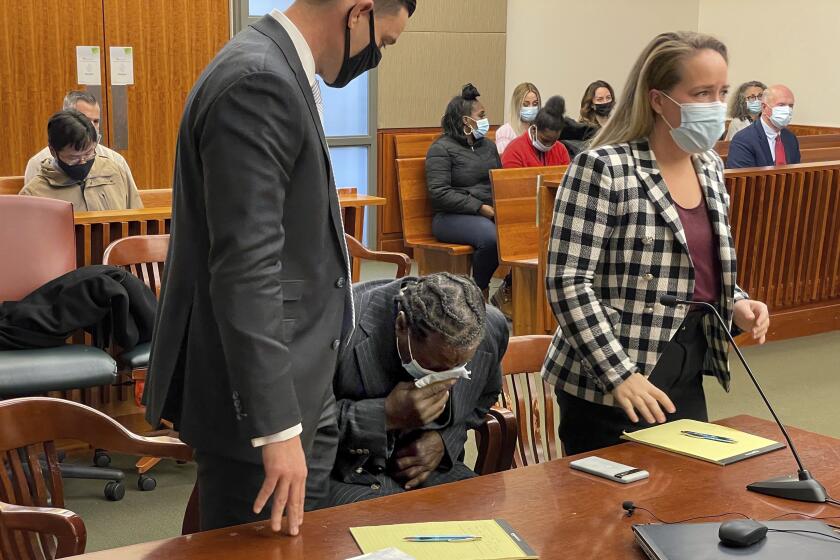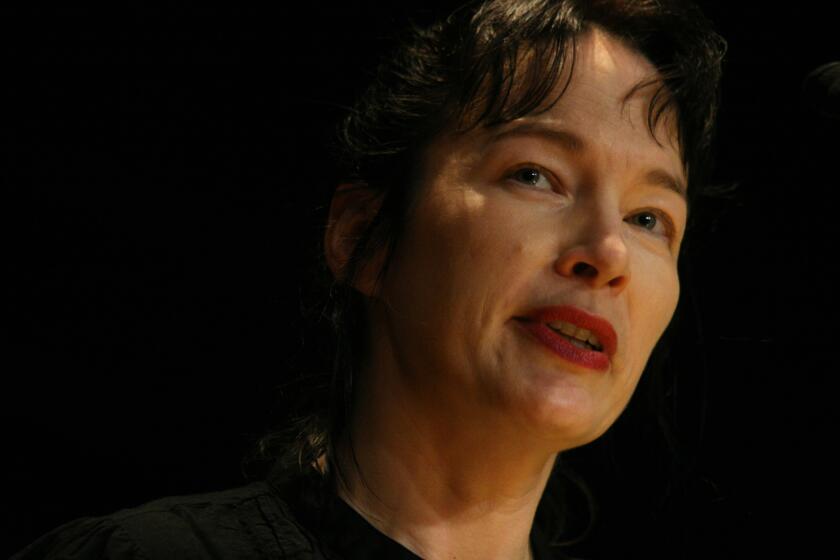N.Y. to pay $5.5 million to man exonerated in writer Alice Sebold rape case

- Share via
SYRACUSE, N.Y. — A man who spent 16 years in prison after he was wrongfully convicted of raping writer Alice Sebold when she was a Syracuse University student has settled a lawsuit against New York state for $5.5 million, his lawyers said Monday.
The settlement comes after Anthony Broadwater’s conviction for raping Sebold in 1981 was overturned in 2021. It was signed last week by lawyers for Broadwater and New York Atty. Gen. Letitia James, David Hammond, one of Broadwater’s attorneys, said.
Broadwater, 62, said in a statement relayed by Hammond, “I appreciate what Attorney General James has done, and I hope and pray that others in my situation can achieve the same measure of justice. We all suffer from destroyed lives.”
A rape conviction at the center of a memoir by author Alice Sebold is overturned because of what authorities found were serious flaws with the prosecution.
Sebold was an 18-year-old first-year student at Syracuse when she was raped in a park near campus in May 1981. She described the attack and the ensuing prosecution in a memoir, “Lucky,” published in 1999.
Sebold went on to win acclaim for her 2002 novel “The Lovely Bones,” which recounts the aftermath of a teenage girl’s rape and murder and was made into a movie starring Saoirse Ronan, Susan Sarandon and Stanley Tucci.
Sebold, who is white, wrote in “Lucky” that she spotted a Black man in the street months after being raped and was sure that he was her attacker.
“He was smiling as he approached. He recognized me. It was a stroll in the park to him; he had met an acquaintance on the street,” Sebold wrote. “‘Hey, girl,’ he said. ‘Don’t I know you from somewhere?’”
Sebold apologized to Anthony Broadwater, convicted of her rape in 1982 and exonerated last week. Her publisher announced a pause to consider revisions.
Police arrested Broadwater, who was given the pseudonym Gregory Madison in “Lucky,” but Sebold failed to identify him in a police lineup, picking a different man as her attacker.
Broadwater was nonetheless tried and convicted in 1982 after Sebold identified him as her rapist on the witness stand and an expert said microscopic hair analysis had tied Broadwater to the crime. That type of analysis has since been deemed junk science by the U.S. Department of Justice.
Broadwater was released from prison in 1999 but still had to register as a sex offender until his conviction was vacated in November 2021.
William J. Fitzpatrick, the current district attorney for Onondaga County, the central New York county that includes Syracuse, joined the motion to vacate the conviction, noting that witness identifications, particularly across racial lines, are often unreliable.
Sebold apologized to the man exonerated in her 1981 rape, saying there was no debate over judicial injustice back then. A contemporary begs to differ.
Broadwater’s settlement with the state must be approved by a judge before it becomes final.
A message seeking comment was sent to the attorney general’s office.
Broadwater has also filed a federal civil rights lawsuit against Onondaga County, the city of Syracuse and an assistant district attorney and a police officer who were involved in prosecuting him. That case is pending.
Sebold apologized to Broadwater in a 2021 statement released to the Associated Press and later posted on Medium.
She wrote that “as a traumatized 18-year-old rape victim, I chose to put my faith in the American legal system. My goal in 1982 was justice — not to perpetuate injustice. And certainly not to forever, and irreparably, alter a young man’s life by the very crime that had altered mine.”
A message seeking comment on Broadwater’s settlement with New York state was sent to a representative for Sebold on Monday.
More to Read
Sign up for Essential California
The most important California stories and recommendations in your inbox every morning.
You may occasionally receive promotional content from the Los Angeles Times.












